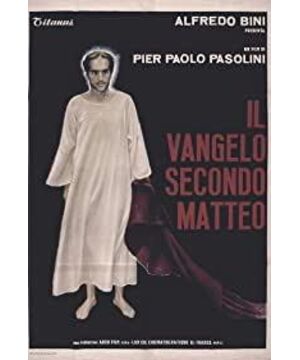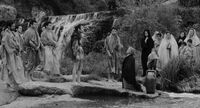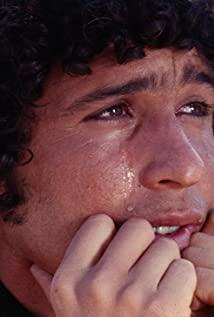Look at the following passage from the original text of the Bible:
16 A man came to Jesus and asked, "Teacher, what good thing must I do to have eternal life?" 17 Jesus said to him, "Why do you ask me about good things? There is only one is good. If you want to enter into eternal life, keep the commandments.” 18 He said, “Which commandments?” Jesus said, “You shall not murder; you shall not commit adultery; you shall not steal; you shall not bear false witness; 19 Honor your father and mother; And love your neighbor as yourself." 20 The young man said, "I have obeyed all this, what do I lack?" 21 Jesus said, "If you are willing to be perfect, go and sell what you have and give it to the poor, Then there will be treasures in heaven; then come and follow me." 22 When the young man heard this, he went away sorrowful, because he had many possessions.
23 Jesus said to his disciples, "Truly I tell you, it is difficult for a rich man to enter the kingdom of heaven. 24 I tell you again, it is easier for a camel to pass through the eye of a needle than for a rich man to enter the kingdom of God!" 25 When the disciples heard this, they were very surprised, Said, "So, who can be saved?" 26 Jesus looked at them and said, "With man this is impossible, but with God all things are possible.
The film (about 100 minutes) is missing verses 25 and 26. Jesus The words stop at verse 24, that is, it is announced that it is impossible for the rich to enter the kingdom of heaven.
Then why omit verses 25 and 26? Consider the following two possibilities:
(1) Because the content is not important, it is omitted to save time. On the
contrary , the omitted content of this paragraph is very important, without verses 25 and 26, the meaning of this paragraph is completely reversed (see below). And saving time should not be a real reason, because it is only two dialogues, and there is no superfluous
(2) Intentional handling If
there are no verses 25 and 26, then that means that it is impossible for the rich to enter the kingdom of God without selling their property to the poor. Of course, Pasolini neither believed God, of course, does not believe in the kingdom of heaven in the Bible, but it may be understood as a state similar to salvation, because Marx's redemption is in the world. Since this rich man cannot meet the corresponding conditions, he must be excluded.
(There are different interpretations of the "eye of the needle", one of which is that there is a small city gate in the Jewish city called "the eye of the needle". If a camel cannot pass through with goods on its back, it must be unloaded to pass through. If you say, then Jesus doesn't seem to have to say "it is impossible in man", here as a reference.)
If you add verses 25 and 26, the meaning of the whole passage is reversed. That is to say, it is (almost) impossible for a rich man to enter the kingdom of heaven, but this is impossible in the eyes of man, if God wills, everything is possible. All of this naturally includes the entry of the rich into the kingdom of heaven.
How do rich people get to heaven? If he believes in Jesus. There is one place here that needs to be pondered. When Jesus said, "You are going to sell all your possessions," he did not mean, "If any rich man X sells all his possessions to give to the poor, he will enter the kingdom of heaven." Rather, he said this because he knew that the rich man couldn't do it. The question the rich man asked was, "What must I do to inherit eternal life," as if doing something to inherit eternal life. The core teaching of Christianity is that salvation is freely given by God, not by human effort. So he asked in the wrong way, Jesus said this, he knew he couldn't do it and had to leave.
So is it true that rich people who believe in Jesus can gain eternal life without selling their property? It depends on the situation. If you are completely obedient to a person, then what he says to you, you will do. For example, Kierkegaard's interpretation of Abraham: he obeyed God, so he was willing to obey his command to kill his own son, and he believed in God's all-goodness at the same time, so it is reasonable to think that he had no doubts in the whole process. So in this case, Jesus told him to sell his possessions, and if he believed, he would have done so. But does this happen to every rich man? This is unnecessary, because the condition of salvation is faith, not the sale of property to help the poor. Of course, if a person believes, he will definitely help the poor, but not necessarily in the form of selling property, because sometimes having property in hand can help people better. In any case, he is not declaring: "If the rich do not sell their possessions and give them to the poor, they will not enter the kingdom of heaven," because that in itself has nothing to do with redemption.
Therefore, I think Pasolini is very likely to deliberately carry private goods here.
View more about The Gospel According to St. Matthew reviews











